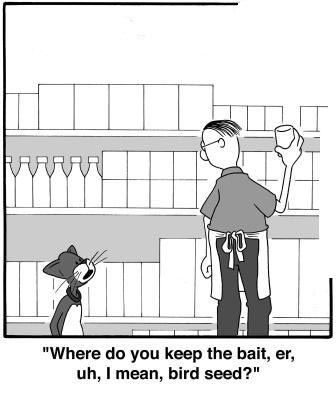長(zhǎng)期以來(lái),超市擺貨員都被視為毫無(wú)前途的職業(yè),甚至比不上回家生孩子。然而,細(xì)細(xì)觀察那些默默無(wú)聞的擺貨員,你會(huì)發(fā)現(xiàn)他們同樣值得尊敬和感謝。

By Anthony Daniels
∷林希文 選注
If you ask anyone for his idea of a dead-end job, the chances are that he will reply “stacking supermarket shelves.”[1]
This occupation, indeed, has become a trope for the futility of existence at the lower end of the social spectrum.[2] Not long ago, for example, a columnist in the Guardian wrote that it was scarcely any wonder that teenage girls had babies when the only alternative open to them was stacking supermarket shelves.[3] As far as she was concerned, having a baby could prevent a worse fate.
But if supermarkets are necessary, then so are supermarket shelves—they have to be stacked by someone.
There is nothing dishonourable[4] or dishonest about stacking shelves. On the contrary, it is a socially useful thing to do. Moreover, the variation of abilities to be found in any human population suggests that this is the kind of work that suits some people quite admirably.[5]
However, I do not want to stress this last point for fear that I should be thought to be impugning the intelligence of those who work in supermarkets.[6] And this would be precisely the opposite of my intentions. I have always found people who work in supermarkets—whether in Tesco, Sainsbury, Waitrose, Morrisons or any other[7]—not only competent but eager to please. Whenever I approach them to ask where I may find coriander or brass polish,[8] they drop what they are doing and take me straight there.
The checkout[9] staff are always pleasant too. Their job is far from uninteresting, contrary to what unimaginative intellectuals might suppose. Surely people’s purchases, infinitely various in their combination, must tell you a lot about them. I don’t think I would mind working on a supermarket checkout, at least for a few months.
In my experience, this snobbish condescension expressed by intellectuals for supermarket shelf-stackers often infuriates people much more than large injustices.[10] Therefore, if you want to improve society, don’t take for granted the small services rendered[11] you by others. Don’t just say thank you, but actually be thankful for them.
Vocabulary
1. dead-end: 沒(méi)出路的,沒(méi)前途的;the chances are: 很有可能的情況是……;stack: 堆放。
2. 的確,這一職業(yè)已用來(lái)比喻社會(huì)下層民眾的生存毫無(wú)希望。trope: 修辭,比喻;spectrum: 范圍。
3. it was scarcely any wonder: 不足為奇;alternative: 可供選擇的事物。
4. dishonourable: 不光彩的,丟臉的。
5. variation: 變化;admirably: 極好地。
6. impugn: 懷疑,質(zhì)疑;intelligence: 智力,智慧。
7. Tesco, Sainsbury, Waitrose, Morrisons均為英國(guó)大型超市名。
8. coriander: 芫荽,香菜;brass polish: 擦銅油(銅部件時(shí)間長(zhǎng)了有銅綠,用擦銅油擦后會(huì)變亮)。
9. checkout: 收銀臺(tái)。
10. snobbish: 自命不凡的,勢(shì)利的;condescension: 屈尊俯就;infuriate: 激怒,使發(fā)怒。
11. render: 給予。
(來(lái)源:英語(yǔ)學(xué)習(xí)雜志)
